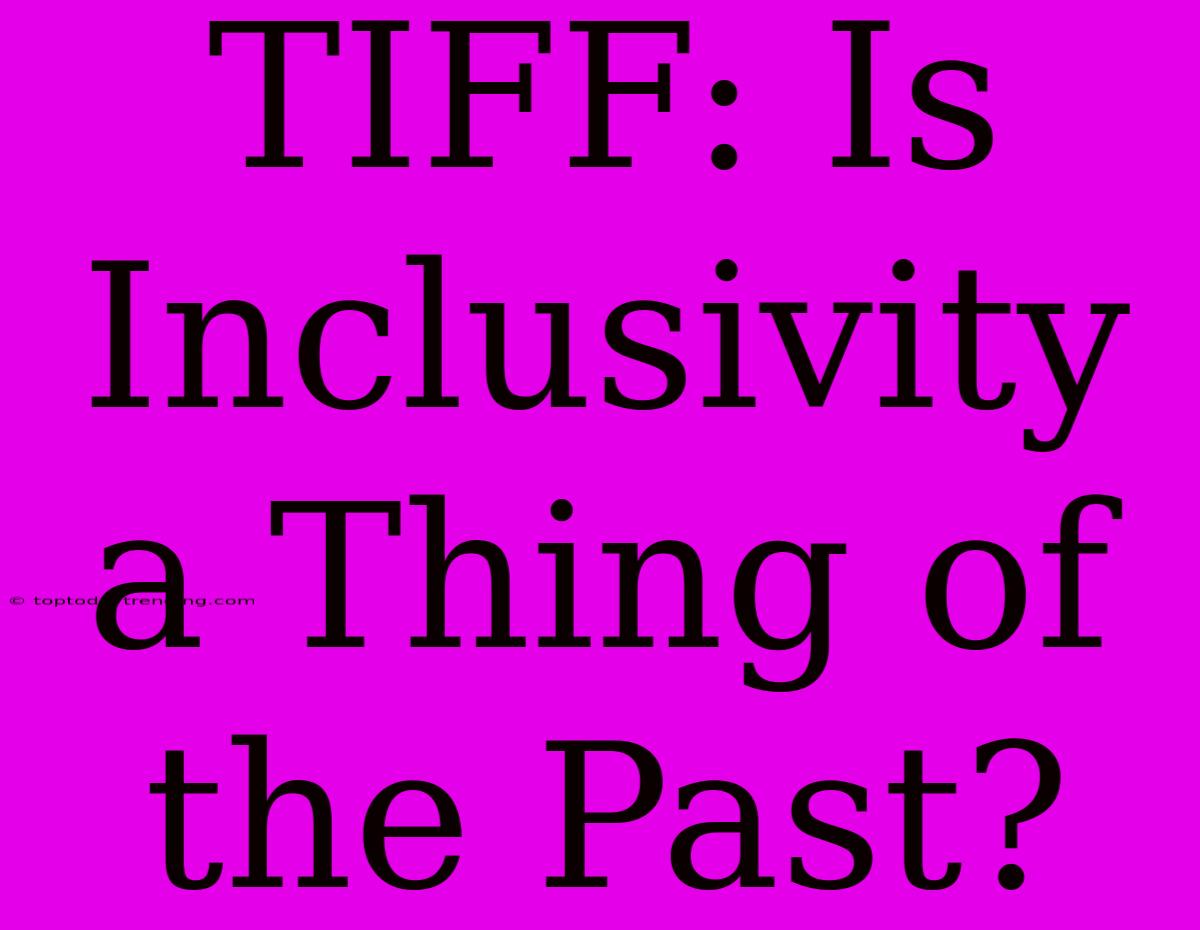TIFF: Is Inclusivity a Thing of the Past?
The Toronto International Film Festival (TIFF) has always been a beacon for cinematic excellence, a platform launching countless careers and showcasing the best of global filmmaking. However, in recent years, a growing concern has emerged: Is TIFF truly living up to its commitment to inclusivity?
The conversation surrounding diversity and representation in film has become increasingly vocal, demanding that the industry reflect the multifaceted realities of our world. While TIFF has made efforts to address this, the festival has faced criticism for its apparent lack of progress in fostering a truly inclusive environment.
A Look at the Numbers:
The numbers paint a telling picture. A 2022 study by the University of Southern California's Annenberg Inclusion Initiative revealed that while the representation of women and people of color in front of the camera has increased slightly, the behind-the-scenes landscape remains largely dominated by white men. This trend is reflected in TIFF's programming, with a noticeable absence of films directed by and featuring women, people of color, and LGBTQ+ individuals.
Beyond Numbers:
The issue extends beyond mere statistics. Critics argue that TIFF's selection process is flawed, favoring certain demographics over others. Furthermore, the festival's marketing and promotion efforts often fail to adequately highlight diverse voices and perspectives.
TIFF's Response:
In response to these criticisms, TIFF has implemented various initiatives aimed at promoting diversity and inclusion. These include:
- The "Share Her Journey" program: This initiative supports female filmmakers and storytellers.
- The "TIFF Next Wave" program: Aimed at fostering young and diverse filmmakers.
- The "Black Film Program": Dedicated to showcasing Black voices and stories.
However, critics argue that these programs are not enough. They point to the need for systemic change, a shift in the festival's core structure and approach to programming and selection.
The Path Forward:
TIFF has a crucial opportunity to solidify its commitment to inclusivity. To achieve this, the festival needs to:
- Adopt a more proactive approach to diversifying its programming: This involves actively seeking out films by underrepresented filmmakers and ensuring a balanced representation across all categories.
- Implement transparent and equitable selection processes: Ensuring fair and diverse representation in its jury panels and committees.
- Invest in initiatives that support diverse voices and perspectives throughout the film industry: This includes mentorship programs, workshops, and funding opportunities.
- Prioritize marketing and promotion that amplifies diverse stories: This can involve dedicating more space and resources to highlighting films by underrepresented filmmakers.
The Stakes are High:
TIFF's commitment to inclusivity is not simply a matter of moral obligation; it's also a matter of relevance and sustainability. By embracing a more diverse and inclusive approach, the festival can ensure its continued relevance in a rapidly evolving film landscape.
Ultimately, the question remains: Is TIFF truly committed to becoming a platform that reflects the world we live in? The festival's future success depends on its ability to address these criticisms and demonstrate a genuine commitment to inclusivity.

